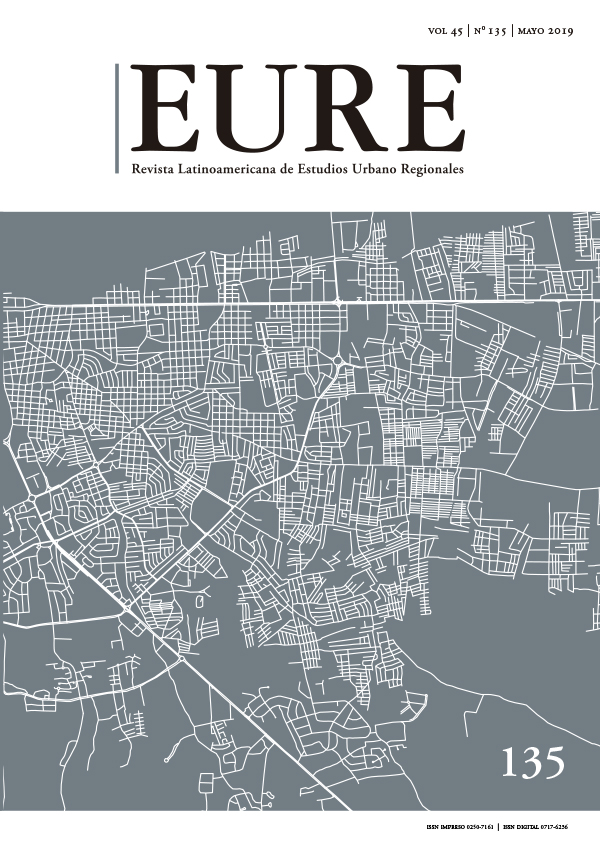Novas abordagens teóricas para as regiíµes de commodities a partir da ecologia política
DOI:
https://doi.org/10.4067/S0250-71612019000200153Palavras-chave:
economia regional, reestruturaí§í£o territorial, regionalizaí§í£oResumo
As transformaí§íµes territoriais impulsionadas pela abertura da economia chilena ao livre mercado há quarenta anos foram analisadas sob múltiplas perspectivas. Uma delas foi proposta em 2003 por Antonio Daher, ao descrever certas regiíµes como "regiíµes-commodities", referindo-se í quelas cujas atividades econí´micas se concentra na exportaí§í£o de um ou dois bens, como forma de inserí§í£o nos mercados globais. Neste artigo, revisitamos este conceito e problematizamos desde a ecologia política, a partir da análise de quatro dimensíµes: produí§í£o, ciclos deboom e crise, a materialidade da natureza comoditizada e identidade, aplicado a dois casos: as regiíµes de Antofagasta (mineraí§í£o cobre) e Los Lagos (criaí§í£o de salmí£o). Nosso argumento é que, para entender a transformaí§í£o territorial que essas regiíµes experimentaram, devemos primeiro reconhecer o projeto de neoliberalizaí§í£o territorial; e segundo, politizar a análise do referido projeto, considerando a materialidade da natureza que será comoditizada.Downloads
Publicado
Como Citar
Edição
Seção
Licença
Copyright (c) 2019 Revista EURE - Revista de Estudios Urbano Regionales

Este trabalho está licenciado sob uma licença Creative Commons Attribution 4.0 International License.
Al momento de aceptar la publicación de sus artículos, los autores deberán formalizar la cesión de derechos de autor a EURE, según las condiciones establecidas por la Revista.
Ésta establece que el autor autoriza a EURE de manera gratuita, exclusiva e ilimitada a reproducir, editar, publicar, distribuir, publicitar, comercializar y traducir el artículo, a cualquier soporte conocido o por conocer y desarrollar.
Del mismo modo, los autores aseguran que el artículo propuesto es original, no publicado y no propuesto para tal fin a otro medio de difusión.


